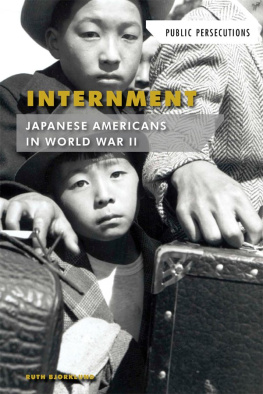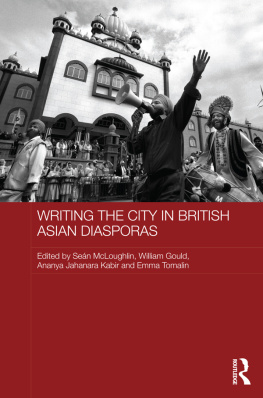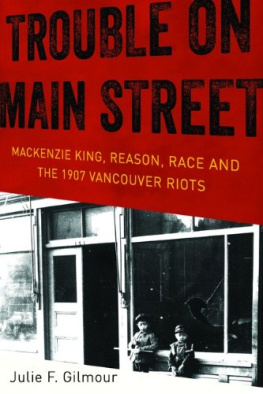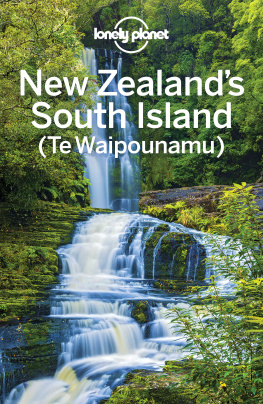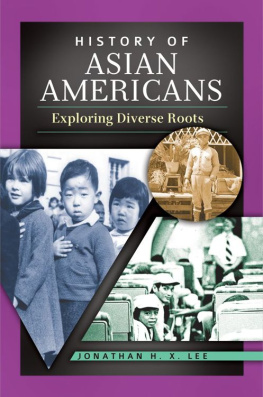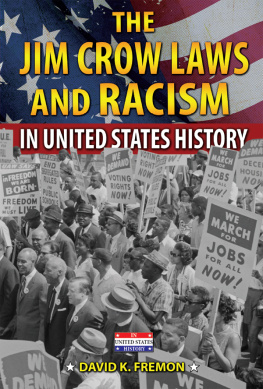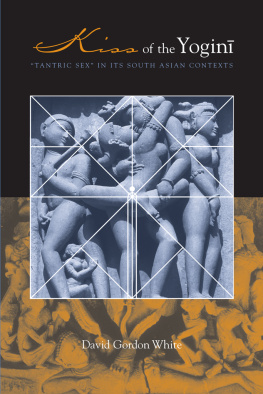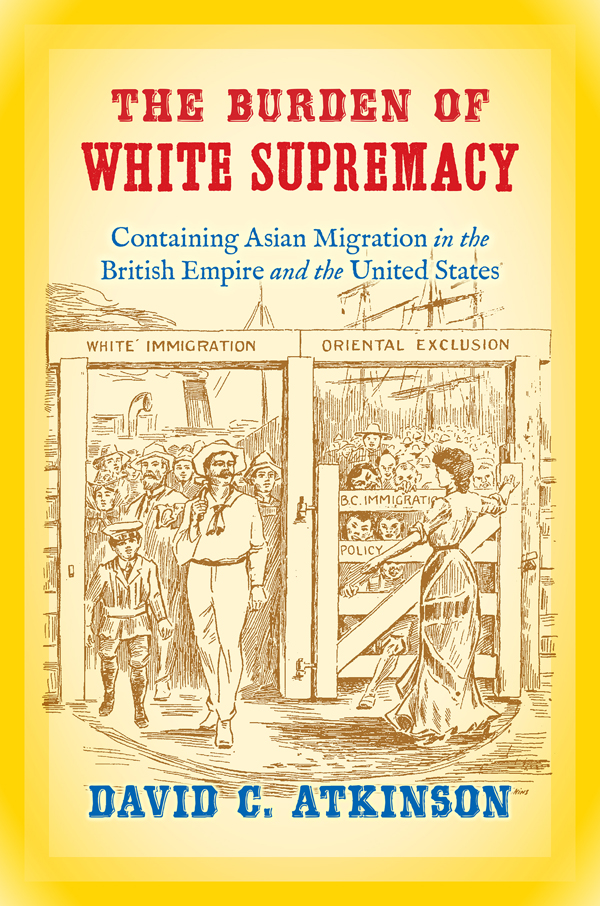Contents
Guide
Pagebreaks of the print version
The Burden of White Supremacy
DAVID C. ATKINSON
The Burden of White Supremacy
Containing Asian Migration in the British Empire and the United States
The University of North Carolina Press Chapel Hill
2016 The University of North Carolina Press
All rights reserved
Set in Arno Pro by Westchester Publishing Services
Manufactured in the United States of America
The University of North Carolina Press has been a member of the Green Press Initiative since 2003.
Library of Congress Cataloging-in-Publication Data
Names: Atkinson, David C., 1975
Title: The burden of white supremacy : containing Asian migration in the British Empire and the United States / David C. Atkinson.
Description: Chapel Hill : University of North Carolina Press, 2017. | Includes bibliographical references and index.
Identifiers: LCCN 2016012016| ISBN 9781469630267 (cloth : alk. paper) | ISBN 9781469630274 (pbk : alk. paper) | ISBN 9781469630281 (ebook)
Subjects: LCSH : AsiansMigrations. | ImmigrantsGreat BritainSocial conditions. | ImmigrantsUnited StatesSocial conditions. | White nationalismGreat Britain. | AsiaEmigration and immigration. | Great BritainEmigration and immigration. | United StatesEmigration and immigration. | White nationalismUnited States.
Classification: LCC JV 8490 . A 9 2017 | DDC 325/.250941dc23 LC record available at https://lccn.loc.gov/2016012016
Cover illustration: Cartoon by N. H. Hawkins on Chinese immigration from Saturday Sunset , August 24, 1907 (courtesy of the Vancouver Public Library, image #39046).
Portions of this book were previously published in a different form as Out of One Borderland, Many: The 1907 Anti-Asian Riots and the Spatial Dimensions of Race and Migration in the Canadian-U.S. Pacific Borderlands, in Entangling Migration History: Borderlands and Transnationalism in the United States and Canada , ed. Benjamin Bryce and Alexander Freund (Gainesville: University Press of Florida, 2015), 12040, and The White Australia Policy, the British Empire, and the World, Britain and the World 8, no. 2 (2015): 20424. Both are used here with permission.
To Charity,
who was there from the beginning,
& Josephine,
who so sublimely punctuated the end.
Contents
Acknowledgments
The process of researching and writing a book is an invigorating and exciting one. At times it is also exhausting and fretful. Like every author, I am therefore grateful to the many people who have supported or dragged me through this experience. I have been fortunate to benefit from outstanding mentorship and would never have attempted to tackle a project of this scope without the wisdom, expertise, and example of William Keylor at Boston University. He continues to be a model for both my scholarship and my teaching. Likewise Brooke Blower is the best kind of critic; funny, fair-minded, and always incisive. Nina Silber also played an important role in helping me envision this book, and her commentary was always perceptive and highly valued. Bruce Schulmans support for my work and the work of so many others over the years is inestimable. Arianne Chernock, Charles Delheim, Lou Ferleger, Fred Leventhal, David Mayers, Brendan McConville, Cathal Nolan, Sarah Phillips, Jon Roberts, Diana Wylie, and Jonathan Zatlin all provided important insights during the early phases, and I am grateful to them for their help.
Conducting research in five countries on three continents was expensive, and I am indebted to numerous grants and fellowships. The Boston University Graduate School of Arts and Sciences provided a Research Abroad Fellowship, which funded my research in Australia and New Zealand. This was supplemented by the Angela J. and James J. Rallis Memorial Award from the Boston University Humanities Foundation. Bruce Schulman and Julian Zelizer enabled my research in Great Britain by sending me to Cambridge University as an American History Fellow, under the auspices of the Boston University American Political History Institute. The Boston University History Department also funded my research in Canada through an Engelbourg Travel Fellowship and provided invaluable support for a year of uninterrupted writing with a John Gagliardo Fellowship. I am especially grateful to the anonymous donor(s) who fund this award. I also benefited from a Summer Faculty Grant from the Purdue Research Foundation during the projects latter stages.
I profited from the considerable knowledge and expertise of archivists and librarians during my research in the United States and abroad, and I would like to acknowledge and thank the staff of the following archives: the National Archives of Australia, the Australian National Library, the Australian War Memorial, the National Archives of New Zealand, the National Library of New Zealand, the Wellington City Library, the National Archives of the United Kingdom, the British Library, the Churchill Archives Centre, the Archives of the University of Cambridge, Library and Archives Canada, the United States National Archives and Records Administration (at both College Park and in D.C.), and the Library of Congress. Those who curate the invaluable collections at these repositories do incredible work, sometimes under unpredictable conditions, and their efforts are always greatly appreciated. Research time in England also meant the opportunity to catch up with family and friends in Leeds and London, and I would like to thank them for their support. Although she will not see the final product, I know that Delia Naughton is proud and glad that I listened. I would also like to express my gratitude to Greg Hughes, Jane Larkin, and Emily Hodgson, who provided an especially hospitable place to stay in London on more occasions than they probably care to remember. I hope that Greg enjoys our book. Anthony Birchley and Dominic Bishop deserve special thanks as well for offering great company and a comfortable place to sleep.
Generous friends and colleagues who read some or all of the manuscript during its various iterations have made this a much better book than it would have been under my sole custody. The Purdue University History Department is an unusually welcoming and productive place to work, and I am grateful for my companions in University Hall. Will Gray read the entire manuscript and offered characteristically trenchant critiques. Carrie Janney has been an indefatigable mentor and guide throughout my time at Purdue, and I am thankful for her support and friendship. Katie Brownell has suffered with this book for as long as I have, first in Boston and now in West Lafayette. I doubt either of us could have guessed that I would still be able to pester her in person for readings, advice, snacks, and tea, but I am fortunate that I can. Similarly Darren Dochuk, Jennifer Foray, Stacy Holden, Doug Hurt, Rebekah Klein-Pejov, Wendy Kline, John Larson, Dawn Marsh, Silvia Mitchell, Nancy Gabin, Yvonne Pitts, Randy Roberts, Margaret Tillman, and Whitney Walton provided perceptive readings, good counsel, and plenty of laughs along the way. Debra Dochuk, Brian Kelly, Jennifer Lindemer Gray, Spencer Lucas, and Mike and Janet Vuolo have made West Lafayette an enjoyable place to call home and therefore a productive place to work.
Beyond Purdue I have benefited from the wisdom of many exceptional scholars over the years. They may or may not recognize their imprint on the final product, but their intercessions were nevertheless instrumental. I am of course especially grateful to the manuscripts anonymous reviewers, whose astute and thoughtful commentaries radically improved this book. Paul Kramer rescued me from repeated interpretive whirlpools, and this book owes much to his extraordinary eye for the big picture. Kristin Hoganson and Andrew Preston provided similarly sagacious and greatly appreciated readings of key parts of this book. I would also like to thank Stephen Arguetta, Eric Arnesen, Ben Bryce, Anne Blaschke, D. J. Cash, Mauricio Castro, Kornel Chang, Sam Deese, Zach Fredman, Lily Geismer, Akira Iriye, Kate Jewell, Francois Lalonde, Erika Lee, Erez Manela, Scott Marr, Adam McKeown, Alex Noonan, Meredith Oyen, and Matthew Schownir for their help at various stages in this process. I appreciate the many panelists, commentators, chairs, and members of the audience who shared their thoughts on my work at numerous conferences, workshops, and seminars. Whatever errors might remain are, of course, all mine. The editorial and production staff at the University of North Carolina Press have been a pleasure to work with from the beginning, and I am grateful to them for taking such good care of this book. I sincerely appreciate Chuck Grenchs stewardship of the manuscript, ably assisted by Jad Adkins and Iza Wojciechowska.


